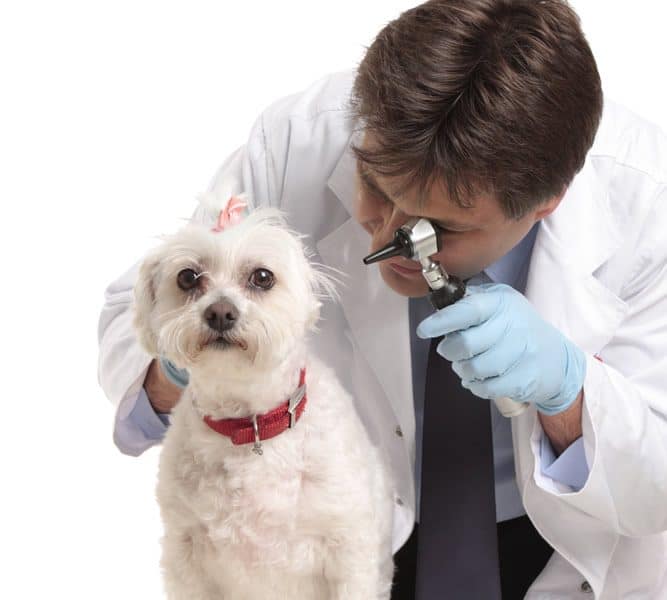How do you teach your pup that vet visits are no big deal? After all, most dogs aren’t crazy about going to the vet and why should they be? Vets are full of funny smells, strangers, and unknown animals. They have no idea why they are there, and then someone they don’t know starts poking and prodding them. It can be overwhelming for even the most easygoing dog.
What will help is getting your dog accustomed to the types of experiences that he is likely to encounter on visits to the vet. Whether you own an adult dog or a puppy, these essential tips to keeping your dog calm for their vet visits and managing the whole experience properly can help dog owners of all types.
Handling
Dogs usually bond and obey their immediate family first and foremost, and may be reluctant to be handled by anyone else. However, it is vital to get your dog used to being handled by other people, particularly people that they don’t see on a regular basis, in order to ensure that they are open to the idea of being handled by the staff at the vets.
Take the opportunity when you can to let other people handle your dog and issue commands to them, and ensure that your dog comes to view this in a positive light. Getting your dog accustomed to being touched is essential for your dog’s comfort during a visit to the vets. In a routine check up, a vet may look in your dog’s eyes, ears, and mouth, listen to his heart and lungs, touch his belly, check his joints, and take his temperature. Dogs that are handled daily will be less likely to perceive this as invasive, and more likely to regard it as affectionate (hopefully!)

Positive association
Stop by the vets every now and again just to say hello. This way you can make sure that visiting the clinic isn’t always bad and can be a positive experience for your dog. Stopping by occasionally reduces your dog’s anxiety by simply transforming the vets from an unknown to a known environment – and while you are there, see if you can persuade the reception staff to have a kind word with your dog and maybe give them a treat! If you have a puppy, start your social vet visits as early as possible, but don’t worry if you have an older dog or a dog that is already anxious about vet visits. Fun and happy social visits can dramatically reduce an adult dog’s stress level too. Just be sure to call ahead and tell your vet what you plan to do.

Obedience
A dog that will not sit, stay or do as they are told is going to find their visit to the clinic, and many other aspects of their life, much more stressful than they need to be. It’s much less stressful for your dog if you can ask him to perform a command instead of having to physically move him to the scale, or turn him around, etc. It can also help take a dog’s mind off of the stress of being at the vets if you have some training skills or tricks you can “practice” while you are waiting.
Distraction
When you do take your dog to the vet for treatment for an illness or even just for a check up, be sure to bring along treats or toys to help reinforce your dog’s good behaviour. Be generous with your rewards and really let your dog know when he is doing a good job.
Exercise
If you can, exercise your dogs before going to the vets. Take them for a 30-minute walk right before their appointment. Exercise will tire your dog out, so they will be calm and relaxed during their appointment.
And above all, stay calm yourself. Dogs are incredibly sensitive to human emotions—especially their owner’s emotions. If your dog sees you panicking and getting worked up, they’re more likely to feel like there is something to be worked up about, be a calming influence and reward their good behaviour with treats and a fuss.


